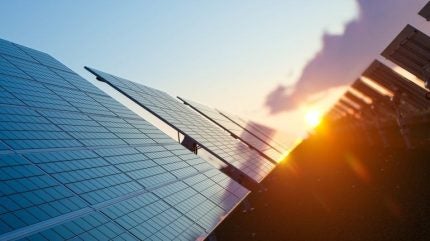
Germany’s Federal Network Agency has selected 258 projects with a combined capacity of 2,271MW in its latest ground-mounted solar tender round.
The awarded values were significantly below the established maximum price, indicating robust competition in the sector, and Federal Network Agency president Klaus Mueller commented: “Competition is still keeping award prices well below the price ceiling.”

Discover B2B Marketing That Performs
Combine business intelligence and editorial excellence to reach engaged professionals across 36 leading media platforms.
The latest round of tenders, aimed at ground-mounted systems and solar installations on non-building structures, was oversubscribed, with the agency seeking to support projects totalling 2,266MW.
By the deadline of 1 July 2025, the agency had received 313 bids with a combined volume of 2,820MW.
The successful bids were priced between €0.04 per kilowatt hour (kWh) and €0.0626 per kWh. The average volume-weighted award value stood at €0.0484 per kWh, which, while slightly above the previous tender’s average of €0.0466 per kWh, remained well under the price cap of €0.068 per kWh.
Regionally, Bavaria led with 106 winning projects and a combined capacity of 689MW. It was followed by Rhineland-Palatinate with 23 successful bids for 251MW, and Lower Saxony with 18 awards totalling 250MW.

US Tariffs are shifting - will you react or anticipate?
Don’t let policy changes catch you off guard. Stay proactive with real-time data and expert analysis.
By GlobalDataThe earlier tender round had seen the awarding of contracts for 271 projects with a capacity of 2,638MW.
In mid August 2025, Germany’s solar industry raised concerns over a proposal by Economy Minister Katherina Reiche to end feed-in subsidies for new small-scale rooftop photovoltaic systems.
Germany experienced a notable rise in energy consumption during the first half of 2025. Energy usage in Europe’s largest economy reached 187.3 million tonnes of coal equivalent, a 2.3% rise from 183.1 million during the same period in 2024, according to a report released by the industry statistics group AG Energiebilanzen.





